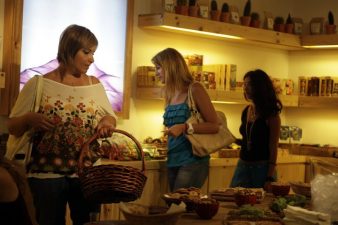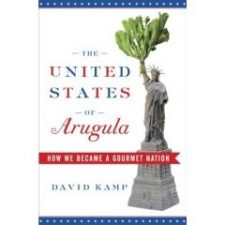 SEKEM, an Egyptian organic farming community has been chosen as one of 16 ‘Sustainability Champions’ in the developing world which are tackling environmental and social problems
SEKEM, an Egyptian organic farming community has been chosen as one of 16 ‘Sustainability Champions’ in the developing world which are tackling environmental and social problems
A recent report by the World Economic Forum has identified 16 successful companies from as far afield as Costa Rica and China which have shown great environmental awareness and tackled social problems. These ‘New Sustainability Champions’ include just one company from the Middle East and North Africa region- SEKEM.
Established by Dr. Ibrahim Abouleish in 1977, SEKEM is a truly unique enterprise which integrates social, economic and environmental development in an organic farming community just outside, Cairo. Today the company is run by Dr. Abouleish’s son Helmy and what started as a 70-hectre organic farm is now a several thousand hectres farming community which champions sustainable agriculture.
After years of working to improve the soil quality of reclaimed land from the desert on the southeastern edge of the Nile Delta, SEKEM harvested their first crop of organic fruits, vegetables and spices in 1983. They now produce organic fruit, vegetables, cotton, cereals, herbs and herbal medicines which are all grown without pesticides or fertilizers. The main advantages of organic agriculture in these reclaimed desert lands is that it helps to improve the soil, it optimises water use and also supports more workers than conventional farming. SEKEM, which means ‘vitality from the sun’ in Egyptian hieroglyphics, currently employs around 2,000 people.
SEKEM farms use organic waste fertilizers which are able to hold more water than chemically fertilized land- something which is ideal for the water scarce country. Working with Egypt’s Ministry of Agriculture, SEKEM also demonstrated the possibility of successfully growing organic cotton by using biological pheromones to control cotton insects. By 2000, the use of pesticides on Egyptian cotton fields had fallen by over 90% and 80% of Egyptian cotton is now grown without synthetic insecticides.
Indeed, Helmy Abouleish has said that a 100% conversion of global agricultural land into organic agriculture would transform the agricultural sector from a significant contributor to climate change into a net carbon sink.
As well as various subsidiaries involved in the agricultural field, such as Conytex which produces children’s garments from organic cotton, one of SEKEM’s initiatives is the Egyptian Society for Cultural Development. Founded in 1984, the society has helped build a kindergarten, the SEKEM primary and secondary school with 300 pupils, a vocational training centre, an institute for Adult Education, an education programme for disabled children as well as a SEKEM medical centre which treats 30,000 people a year.
Workers all enjoy great working conditions, a fair wage and run remarkably well-managed farms and beautiful buildings surrounded with the fragrances of chamomile and mint. In 2003, the eco-friendly business won the prestigious Right Livelihood Award – known as the ‘Alternative Nobel Prize’ – which honours those working on the most urgent challenges facing the world.
:: BBC NEWS and Findarticles.com.
: Image via Bijan/flickr.
For more on organic farming in the Middle East see:
Nature Reserve In Jordan Growing Organic
Qatar To Invest In 1,400 New Local Farms
Organic Farming On The Rise In Emirates
Under The Nile’s Organic Cotton Clothes & Toys For Babies



The picture appears to have been taken at the base of Mt. Sinai (Jebel Musa) which I had the privilege of climbing back in 1974. It was a very memorable experience to say the least; and I still have color slides of photos I took there, including one of the sunrise from the summit.
Hard to believe this occurred more than 35 years ago!